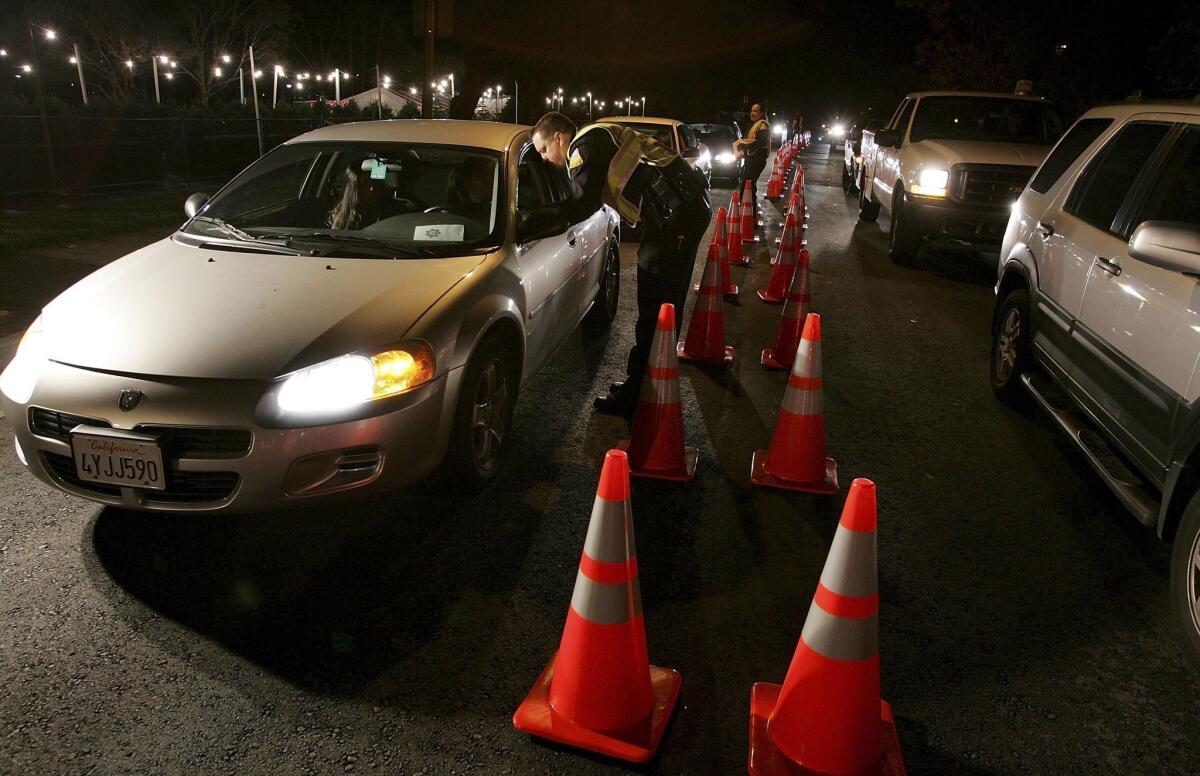A warrant to draw blood?

- Share via
The Supreme Court was asked this week to rule that police never need to obtain a search warrant before drawing blood from a motorist stopped for drunk driving. The court should reject that claim.
In 2010, Tyler G. McNeely was stopped by a Missouri highway patrolman for speeding. After McNeely refused to undergo a breath test, the patrolman drove him to a hospital and, over McNeely’s objections, directed a phlebotomist to take a sample of McNeely’s blood. The results indicated a blood alcohol level well above the legal limit, but a trial judge and the Missouri Supreme Court held that the evidence was inadmissible because it had been obtained without a warrant.
The state of Missouri, supported by the Obama administration, urged the court to rule that the drawing of blood without a warrant is always constitutional because evidence of alcohol in the blood dissipates as the minutes pass, which means there’s no time to wait for a warrant.
Fortunately, both liberal and conservative justices seemed reluctant to grant police a general dispensation from the warrant requirement for a practice as physically intrusive as drawing blood. “So how can it be reasonable to forgo the 4th Amendment in a procedure as intrusive as a needle going into someone’s body?” Justice Sonia Sotomayor asked during Wednesday’s oral arguments.
As for the suggestion that obtaining a warrant might take so long that traces of alcohol would dissipate, McNeely’s lawyer noted that many jurisdictions allow police to obtain warrants by telephone or electronically. That raises the question of whether magistrates are really scrutinizing warrant applications, which, as Justice Antonin Scalia pointed out, tend to include boilerplate descriptions such as “his breath smelled of alcohol” or “he couldn’t touch his nose with his index finger.” Scalia asked: “What is the impartial magistrate possibly going to do except to say, hey, you know, that’s probable cause?”
Scalia had a point, but so did Justice Stephen G. Breyer in observing that a warrant requirement means that “you have a second judgment and the officer has to talk to somebody, so he’s a little more careful.” For example, knowing that he must obtain a warrant, an officer might take greater pains to ensure that a motorist’s behavior isn’t caused by a reaction to medication rather than intoxication. The Supreme Court has no cause to do away with that additional protection.
More to Read
A cure for the common opinion
Get thought-provoking perspectives with our weekly newsletter.
You may occasionally receive promotional content from the Los Angeles Times.










